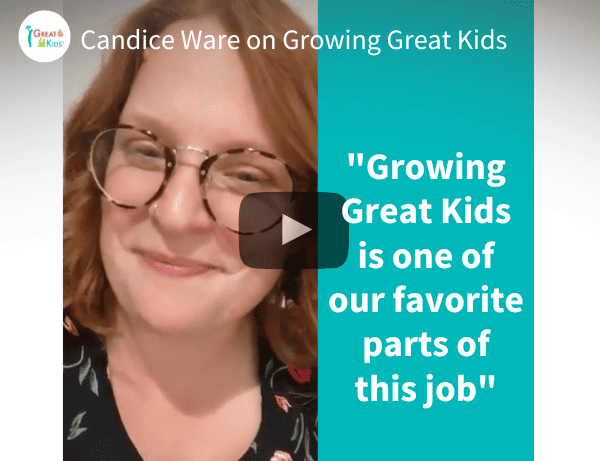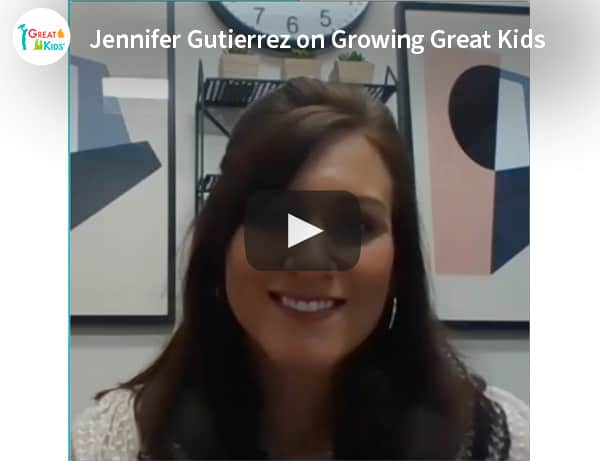
We create early childhood education curricula and training for home visiting programs who support families.
Rigorous Independent Program Evaluations
As evidenced by seven independent evaluations, the Growing Great Kids (GGK) Curriculum produces outstanding results for programs that adhere to the Great Kids Critical Program Elements, use the GGK Curriculum as their primary intervention tool during all home visits, and provide regular on-site technical assistance to assure implementation fidelity across their service network.
Independent evaluations of the following programs have demonstrated significant and sustained benefits for children, families, and communities.
1. Randomized Trial of Healthy Families Arizona: Quantitative and Qualitative Outcomes – Craig LeCroy and Melinda Davis
The purpose of this research was to use a randomized controlled trial to assess the short-term effectiveness of the Arizona Healthy Families program, utilizing the Growing Great Kids Curriculum, across a range of outcomes. Results revealed significant findings across four domains including safety and resources, parenting attitudes and behaviors, health and maternal outcomes, and mental health and coping. These results were further corroborated with an analysis of qualitative findings that analyzed linguistic differences between how the treatment and control group described their parenting. These results add to the existing literature on the effectiveness of the Healthy Families model of home visitation. The principal researcher for this study is Craig LeCroy, Ph.D, University of Arizona, School of Social Work. Dr. LeCroy has published more than 100 articles and authored 11 books.
Click here to view the full article
2. Children’s Institute, Inc.
Project Stable Home Abandoned Infants Assistance Grant No.: 90-CB-0159 Final Report: October 2012
Children’s Institute, Inc. was awarded the Abandoned Infants Assistance (AIA) grant to Support Project Stable Home for the period of October 2008 through September 2012. Project Stable Home (PSH) is an intensive home-based parenting program that has been building a strong evidence base. The 84 families, who completed at least 6 months of service, with the Growing Great Kids Curriculum being a primary intervention, reported the following risk factors for study families:
Lifetime Risk Factors Reported by PSH Mothers in the Initial Interview Risk Factor Percentages Identified
- Domestic Violence (55%)
- Child Removed from Home (43%)
- Substance Abuse (42%)
- Physical Abuse as a Child (30%)
- Sexual Abuse as a Child (28%)
- Criminal Conviction (26%)
- Psychiatric Illness History (26%)
- Selling Drugs (15%)
- History of Prostitution (8%)
For more information, contact Kathy Flanagan at Great Kids, Inc.
- Improvement in child development, including significant decreases for children who entered the program with development in the problem range.
- 100% of families reported satisfaction with the program with 81% reporting strong satisfaction. (e.g. I have benefited from PSH; my child has benefited from PSH; I can play and talk with my child better; I feel closer to my child; I can take care of my child better).
- Improvement in Parental Well-Being: assessments of parents expressed needs; well-being, parenting stress, and parenting attitudes were derived from 81 parents. In 6 months, in all four domains, there were highly significant improvements.
- Significant improvement in every category on the Infant-Toddler Home Scale
- All clients reported on having made progress on all program goals.
3. Dakota Healthy Families, Dakota County, Minnesota
Dakota Healthy Families reaches out to families prenatally or at birth using the Great Kids Parent Survey to determine appropriate community resources to offer parents. Families under many stresses are offered home visits. The GGK curriculum serves as their primary intervention tool. Parenting facilitators receive weekly supervision aimed at ongoing skill development in the effective use of both the Growing Great Kids and Growing Great Families manuals and support materials.
The Dakota Healthy Families program, with the assistance of Minnesota’s Center for Urban and Regional Affairs, studied 150 families that received home visitation services in 2004. Family demographics included:
- 92% living below the poverty line
- 80% single
- 66% young (teens)
- 39% facing challenges of domestic violence
- 23% with mental illness
- 17% with social isolation
Results of this evidence based Evaluation:
- Only 7% of the most at-risk DHF (Dakota Healthy Families) families had confirmed cases of child maltreatment, as opposed to the 53% expected. The result: DHF nearly pays for itself by avoiding cases of confirmed child maltreatment. Every child maltreatment case that is avoided saves enough money to serve four families through DHF. The long-term cost savings are much greater, as early intervention programs like DHF often head off long-term dependency on government programs such as welfare, special education, and the criminal justice system.
- Prenatal Tobacco Use: 90% of DHF expectant mothers either stopped or decreased smoking from their first home visit to delivery.
- Age Appropriate Healthcare: At ages 3, 6, 12, and 24 months, nearly all DHF children could access a primary healthcare provider.
- Immunization Rate: At 3, 5, and 24 months, most DHF children were on track at 98%, 90%, and 88%, respectively.
- Home Safety: 85% of the families achieved an acceptable Home Safety rating.
- Specific ways DHF improved the lives of parents were identified in an annual parent satisfaction survey. Parents reported a better understanding of child development and warning signs of child abuse, as well as an improved ability to take care of the child, deal with stress and solve problems, and show more patience with the child.
4. Families First, Manitoba, Canada
Families First Manitoba offers the Great Kids Parent Survey to all new parents province-wide to link families with community resources and provides regular home visiting for parents who are living in stressful situations. For nearly a decade, all home visits have been based on the Growing Great Kids Curriculum. For this most current 2010 Evaluation, 1,046 program families and 220 non-program families were compared. At baseline, children in the program were older and more likely to be girls than in the comparison group. Mothers in the program were younger, more likely to be single, more likely to be Aboriginal, less likely to have completed high school, and had lower household annual incomes.
Results of the Families First Manitoba 2010 Evaluation:
- Increased Positive Parenting: Mothers in the program reported talking, playing and laughing with their children, praising them and focusing their attention on them more than mothers in the comparison group.
- Decreased Hostile Parenting: Mothers were less likely to be annoyed with their children or express negative comments to them than mothers in the comparison group.
- Self-Acceptance: Mothers in the program were more likely than mothers in the comparison group to report liking most aspects of their personality, being pleased with their lives and proud of their achievements.
- Environmental Mastery: Mothers in the program were more likely than mothers in the comparison group to report feeling in charge of their situation, and feeling able to manage their responsibilities and the demands of their daily life.
- Purpose in Life: Mothers in the program were less likely than mothers in the comparison group to report wandering aimlessly through life, not thinking about the future or feeling that they had little to look forward to.
- Neighborhood Cohesion: Mothers in the program reported that their neighbors get together to deal with problems, that there are good, local, role models, and that neighbors watch over children in their neighborhood.
- Social Support: Mothers in the program reported that they had family and friends who helped them feel safe, secure, and happy; people they count on in an emergency; and someone to talk to about their problems.
5. KIPS (Keys to Interactive Parenting Scales) 2010 Study Shows Shifts from Low to High Quality Parenting Behaviors
The Keys to Interactive Parenting Scale (KIPS) is a structured observational assessment of parenting quality. The longitudinal study referenced in the below Zero to Three Journal article, supported by the National Institute of Child Health and Human Development, investigated shifts in parenting behaviors with 75 families participating in a home visiting program using the Growing Great Kids Curriculum as a primary intervention. This home visitation program serves highly stressed families who have had adverse childhood experiences, entering the program based on their GKI Parent Survey scores. The study found statistically significant shifts from low to high parenting behavior scores on KIPS assessments.
Comfort, Marilee, Gordon, Philip R., English, Brenda, Hacker, Karen, Hembree, Renee, Knight, Renee, & Miller, Cheryl (2010). Keys to Interactive Parenting Scale: KIPS Shows How Parents Grow. Zero to Three Journal, 30(4), 33-39.
Single issues can be ordered at: https://www.zerotothree.org/about-us/areas-of-expertise/zero-to-three-journal/zero-to-three-journal-index.html
KIPS Publication page: https://comfortconsults.com/publications/
6. Kentucky HANDS, State of Kentucky
Kentucky’s statewide HANDS Program, administered by county health departments starting in 2001, makes approximately 10,000 monthly home visits to families of children pre-birth to 2 years. The following results have been consistently reported and published in Evaluations from 2001 to 2008 (Robert J. Illback, Psy. D. R.E.A.C.H. of Louisville, Inc., Louisville, KY):
- Significantly lower substantiated child abuse/neglect cases for served families than for non-served families
- Improvements in parent-child relationships in the areas of bonding and attachment
- Enriched learning experiences and communication
- Enhanced parental confidence and enhanced parental understanding of child development, supervision of children, and appropriate disciplinary methods
- Improvements in child well-being in the areas of health, nutrition, and hygiene
- Improvements in home safety
- Positive changes for parents in the areas of emotional stability and perceived financial stress
- Improvements in pregnancy outcomes, including:
- Decreased incidence of pre-term deliveries
- Higher birth weights
- Higher APGAR scores
- Decreased incidence of very low birth weights
In 2012, additional research was published by Jonnisa M. Ferguson and Robin C. Vanderpool, that studied parents engaged in a central Kentucky health department-based home-visitation program utilizing the Growing Great Kids Curriculum. Their findings suggest that parents who are at increased risk for negative pregnancy and child development outcomes may be able to improve their risk factors through home-visitation participation. Specifically, lifestyle behaviors and mental health risk, coping skills and support systems, stresses, and anger management skills are risk factors that may experience significant reductions.
Click here to view the full article
7. LeCroy and Milligan Associates Inc. (LMA): Healthy Families America GGK Implementation and Intervention Fidelity Study
This research built on the existing randomized clinical trial being conducted by LeCroy and Milligan and evaluated the implementation of Growing Great Kids in conjunction with an on-going longitudinal study of an Arizona Healthy Families America program.
Implementation fidelity is the degree to which a program is being implemented in the way in which it was intended by the developers. It has been demonstrated that the fidelity with which an intervention is implemented within a program has an affect on the measured outcomes of that intervention. In order to more accurately analyze the connection between the use of the Growing Great Kids curriculum and program improvement outcomes, it was important to measure the fidelity with which the curriculum is being implemented.
LMA performed an implementation assessment of the Growing Great Kids (GGK) curriculum, as it is used by the Healthy Families Arizona (HFAz-Pima) home visitation program of Child and Family Resources (CFR), in Pima County, Arizona from April 1, 2013 through March 30, 2014.
For further information please see the Executive Summary
8. Philippine Islands
With the generous support of the Consuelo Zobel Alger Foundation, Great Kids, Inc. has worked in the Philippine Islands since 1995, in partnership with several private voluntary organizations (NGO’s). Our comprehensive approach supports parents of infants or young children who live in severe poverty. These parents face many challenges, including substance abuse, squatter housing, marital stress and violence, histories of child abuse and neglect, depression, inadequate nutrition, limited access to health services, unemployment, and large families. The Growing Great Kids Curriculum and Staff Development Program meets the special needs of families in Filipino communities.
In seven urban and rural communities, several thousand Filipino families struggle to survive with the most limited resources; however, they have demonstrated that with support and education, their lives and the future for their children can improve dramatically. All 7 programs use the Growing Great Kids Curriculum and Staff Development Program.
Results of these programs were examined in independent evaluations involving approximately 1,200 families (Bautista, Violeta V. and Roldan Aurorita T. 1999. Process Evaluation of Healthy Start Philippine Pilot Sites. Quezon City, Phils. Commissioned by the Consuelo Z. Alger Foundation; Banas, Renato, et. al. 2003. Impact Evaluation of Healthy Start in Barangay Tangub, Bacolod City. Bacolod City. Commissioned by the Consuelo Z. Alger Foundation; Roldan, A., Baraero, D., and Delos Reyes, F. 2000. A Multidimensional Context Study of Goals, Resources, Individual Life Experiences, Difficulties, and Strategies (GRIDS) of Childbearing Low-income Families in Metro Manila: the Needs of the Very Young in Focus. Makati City Phils. Commissioned by A.R.C.S.; Editha Maslang. 2001. Assessment Report of the Growing Great Families Project. Pasig City, Phils. Commissioned by the Christian Children’s Fund-The Philippine Office.)
Outcomes of these four comparison group studies:
- Third-degree malnutrition eliminated for newborn babies (Bacolod City)
- 76% of children gained weight normally (Christian Children’s Fund)
- 84% of new mothers breastfed their children, as opposed to 48% in a comparison group (Manila)
- 23% decrease in child abuse (Bacolod City)
- 75% of mothers responded to their babies’ cues in nurturing ways (Christian Children’s Fund)
- 63% of mothers indicated that they stopped unhelpful traditional childcare practices, as opposed to 36% in a comparison group (Manila)
- 94% adopted a daily childcare routine, as opposed to 48% of the comparison group mothers (Manila)
- 74% indicated that they understood how to stimulate healthy brain development in their children (Christian Children’s Fund)
- The majority of parents participating in the four Christian Children’s Fund programs stated that, as a result of their participation in Growing Great Kids™, they learned to respond to the emotional needs of their children; prior to their participation, they believed that providing for food, clothing, and shelter was enough.
Growing Great Kids Curriculum Research in Progress
Children’s Institute, Inc (CII) Early Head Start
CII serves Los Angeles’s most vulnerable children—those harmed by family and community violence, and/or coping with the challenges of poverty. Validating the Growing Great Kids (GGK) Curriculum in Children 0-3 Years: This is a “within subject design” implementation study underway to determine the effectiveness of the Growing Great Kids Curriculum with 250 families with children enrolled in CII’s Early Head Start program. This research will evaluate the impact of GGK fidelity on outcomes such as: child development, parenting behaviors, parent-child attachments and childhood resiliency. The senior researcher is Bruce Baker, Ph.D, UCLA Clinical Psychology Department, Distinguished Professor. www.childrensinstitute.org.
Growing Great Kids®
Why Choose Great Kids?

Proven Success
Over 50,000 people have been trained to use the Great Kids curricula

Protective Factors – GGK Constructs
Research informed constructs embedded in the Protective Factors Framework

Alignment with Head Start
The Growing Great Kids Home Based Curricula Series exceeds all Head Start Curriculum requirements


Evidenced Based Research
As evidenced by seven independent evaluations, the GGK Curriculum produces outstanding results

Specialized Training Programs
On-site and virtual training options available

Healthy Families America
The Growing Great Kids curriculum aligns with and builds upon the HFA model approach
To Learn More
In this 30-minute consultation, we will learn more about how you support healthy relationships and successful outcomes for children, families, and your community.
Looking forward to connecting and joining you in the journey of discovery to determine if Great Kids is a fit for you.
Testimonials
What home visitors and parents are saying about Great Kids.
"We have really loved the whole curriculum! We do home visits, and we see these families in their homes, or in our offices interacting with their kids and planning activities that they can do to build their self-esteem and work together and strengthen their family as a whole."
Connect With Great Kids
Phone:
1-800-906-5581
Email:
info@greatkidsinc.net


